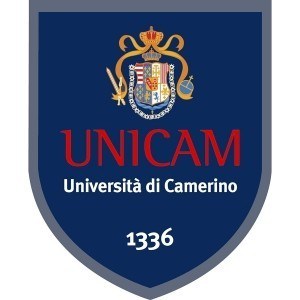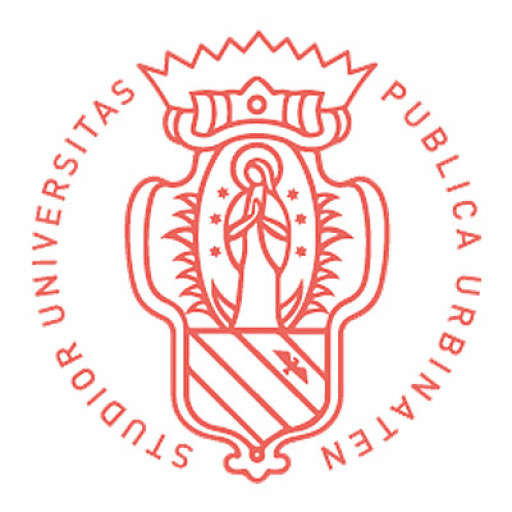Photos of university / #uofglasgow
The Bachelor of Science in Biotechnology at the University of Glasgow is a comprehensive undergraduate programme designed to equip students with fundamental and advanced knowledge in the rapidly evolving field of biotechnology. This degree combines theoretical understanding with practical laboratory skills, preparing graduates for diverse careers in the biotech industry, healthcare, agriculture, environmental management, and research institutions. Throughout the course, students explore core topics such as molecular biology, genetics, microbiology, biochemistry, and systems biology, gaining a solid foundation in the biological sciences. Additionally, the programme emphasizes the application of biotechnology techniques, including genetic engineering, cell culture, bioinformatics, and systems analysis, enabling students to develop innovative solutions to real-world problems.
Students benefit from state-of-the-art laboratories and research facilities, allowing hands-on experience with modern laboratory instrumentation and experimental protocols. The curriculum is designed to foster critical thinking, data analysis skills, and an understanding of the ethical and societal implications of biotechnological advancements. Interdisciplinary modules encourage collaboration across scientific fields, preparing students for multidisciplinary work environments. The programme also includes opportunities for industrial placements and research projects, providing valuable industry exposure and practical experience that enhance employability after graduation.
The University of Glasgow’s strong links with biotechnology companies, research institutes, and medical sectors ensure that students receive up-to-date knowledge and networking opportunities. The programme aims to produce graduates who are not only skilled scientists but also innovative thinkers capable of contributing to advancements in health, agriculture, and sustainable development. With a flexible course structure, students can tailor their degree to focus on specific areas of interest, such as medical biotechnology, agricultural biotechnology, or environmental applications. Upon completion, graduates are well-prepared to pursue further study, research careers, or enter the biotechnology industry directly. The BSc Biotechnology programme at the University of Glasgow is committed to excellence in education and research, fostering the next generation of scientists and innovators in the dynamic field of biotechnology.
The BSc in Biotechnology at the University of Glasgow offers students a comprehensive and in-depth understanding of the fundamental principles and cutting-edge developments in the field of biotechnology. The programme is designed to equip students with the essential knowledge and practical skills needed to contribute effectively to the biotechnology industry, academia, and research sectors. Throughout the course, students will explore a wide range of topics including molecular biology, genetics, microbiology, biochemistry, and bioinformatics, providing a strong scientific foundation. The curriculum emphasizes both theoretical understanding and hands-on laboratory experience, ensuring graduates are well-prepared for real-world applications.
Students will engage in laboratory-based modules that develop their skills in experimental design, data analysis, and scientific communication. The programme also incorporates modules on environmental biotechnology, industrial applications, and the ethical considerations associated with advances in biotechnology. Students have opportunities to participate in research projects, internships, and collaborations with industry partners, enhancing their practical experience and employability. The programme fosters critical thinking, problem-solving, and innovation, encouraging students to think creatively about addressing global challenges such as healthcare, agriculture, and sustainability through biotechnological solutions.
Teaching methods include lectures, seminars, group work, and individual projects, supported by state-of-the-art laboratories and research facilities. The programme culminates in a dissertation or research project, where students apply their knowledge to investigate a specific problem in biotechnology. Graduates of this programme will be equipped with versatile skills suitable for careers in pharmaceuticals, biotechnology companies, research institutions, and regulatory agencies, or for further postgraduate study. The University of Glasgow’s strong links to industry and research communities provide students with valuable networking opportunities and insights into current trends and future developments in biotechnology. Overall, the BSc in Biotechnology at Glasgow is designed to develop skilled, innovative, and responsible scientists ready to make significant contributions to science and society.
Admission to the University of Glasgow's Bachelor of Science in Biotechnology typically requires applicants to meet specific entry criteria, including academic qualifications and language proficiency. Prospective students usually need to have achieved relevant qualifications such as A-levels, Scottish Highers, or equivalent qualifications recognized internationally. A typical offer might require AAA at A-level or equivalent, with particular emphasis on sciences such as Biology and Chemistry. Applicants whose first language is not English are generally required to demonstrate proficiency through tests like IELTS, with a standard minimum overall score of 6.0 and no component less than 5.5, although higher scores may be recommended for competitive consideration. The programme emphasizes a strong foundation in biological sciences, chemistry, and related disciplines, so prior knowledge or coursework in these areas can be advantageous. The curriculum is designed to develop both theoretical understanding and practical skills through a combination of lectures, laboratory work, and project-based learning. Students are expected to participate in laboratory sessions that meet specific safety standards and include training in experimental techniques, data analysis, and scientific communication. The programme curricula include core modules such as Molecular Biology, Microbiology, Biochemistry, Cell Biology, and Biotechnology Applications. Furthermore, students are encouraged to undertake work placements or internships, which can enhance employability and practical experience. Entry requirements may vary slightly depending on specific applicant circumstances or additional qualifications, and prospective students are advised to consult the university's admissions guidance. The university values applicants who demonstrate enthusiasm for scientific inquiry, analytical skills, and the ability to work both independently and as part of a team. International students should verify the specific language requirements and application procedures well in advance of deadlines. Overall, successful applicants to the Biotechnology programme will possess a solid academic background in sciences, meet the language criteria, and show a keen interest in advancing their understanding and skills in biotechnological sciences.
Funding for the BSc Biotechnology program at the University of Glasgow can be obtained through a variety of financial sources. Students are encouraged to explore university scholarships, bursaries, and funding schemes dedicated specifically to science and technology students. The university offers a range of scholarships for both domestic and international students based on academic merit, financial need, or other criteria. For example, the University of Glasgow operates the John Foster Memorial Bursary, which provides financial support to students pursuing science degrees including biotechnology. Additionally, the Margaret Ritchie Memorial Bursary and other discretionary awards may be available to support students during their studies.
Students can also apply for government-backed funding options such as student loans and maintenance grants, available to eligible UK students. The UK government offers tuition fee loans that cover the cost of tuition fees, which can be repaid after graduation based on income level. Maintenance loans are also available to assist with living costs, including accommodation, food, and personal expenses. International students are advised to seek funding from external organizations, including national governments, private foundations, and industry partners, who sometimes sponsor students in fields aligned with biotechnology.
The university also promotes work placement opportunities and paid internships which can help partially fund students’ studies. There are also part-time work opportunities available on campus that enable students to earn supplementary income while gaining valuable experience. Students are encouraged to consult the university’s Financial Aid Office and scholarship webpages regularly for updated information on available funding and application deadlines.
Furthermore, some students may qualify for special funding based on their background, research interests, or participation in specific projects or competitions. The university's industry collaborations can sometimes offer sponsored research projects or fellowship opportunities that provide financial support during undergraduate research and capstone projects. Ultimately, students are advised to explore all available university and external funding options early during their application process to maximize their financial support for studying biotechnology at the University of Glasgow.
The Bachelor of Science in Biotechnology at the University of Glasgow offers students a comprehensive education in the rapidly evolving field of biotechnology. This program is designed to provide students with a solid foundation in biological sciences, including genetics, molecular biology, microbiology, and biochemistry, alongside specialized training in biotechnological methods and applications. Participants will develop practical laboratory skills and gain a thorough understanding of how biological systems can be manipulated and harnessed for various purposes, such as pharmaceuticals, agriculture, and environmental management.
The curriculum covers key areas such as genetic engineering, protein technology, cell culture techniques, and bioinformatics, ensuring that graduates are well-equipped with both theoretical knowledge and practical expertise. The program emphasizes research skills, critical thinking, and problem-solving abilities, preparing students for careers in research institutions, biotech companies, pharmaceuticals, or for further study at postgraduate levels. Students will benefit from state-of-the-art laboratories, experienced academic staff, and opportunities for industry placements that provide real-world experience.
The University of Glasgow’s Biotechnology program also encourages interdisciplinary learning and collaboration, reflecting the multifaceted nature of the field. Students are expected to undertake independent research projects, often working in teams, which promote teamwork, leadership, and communication skills. The program’s structure is designed to adapt to the fast-changing landscape of biotechnology, ensuring that graduates are current with recent technological advances and industry practices.
In addition to technical skills, the program offers modules in ethics, intellectual property, and regulatory affairs, which are crucial for navigating the professional landscape of biotechnology. The degree aims to produce graduates who are innovative, ethical, and globally minded, capable of contributing meaningfully to societal challenges through scientific and technological solutions. Overall, the Biotechnology program at the University of Glasgow is an excellent choice for students interested in the life sciences and their practical applications in industry and research.









